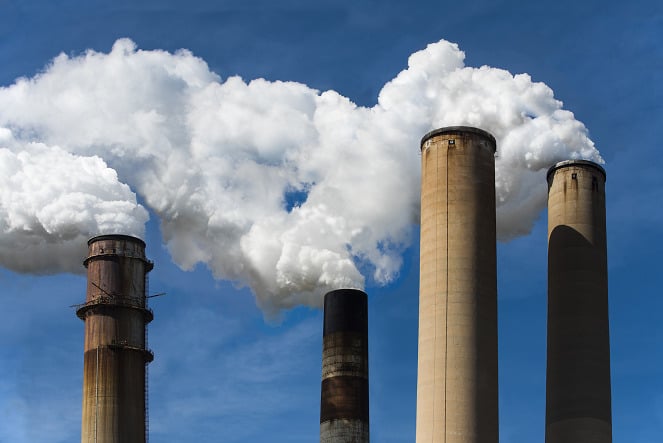The UK is still off track in meeting its 2050 net zero goal, although policies in the pipeline could help this, Green Alliance has found.
In its latest net zero policy tracker, Green Alliance detailed how policies in place at the start of this government left an emissions gap of 985MtCO2e over the fifth carbon budget period (2028-32), with policies and spending announced since only reducing emissions by 24%, leaving a gap of 746MtCO2e.
This calculation factors in emissions from international aviation and shipping, which the Committee on Climate Change (CCC) recommends should be formally included in legal carbon budgets.
However, if the government commits to the housing and transport policies that are currently out for consultation, the UK would be over a third of the way to closing its emissions gap in the fifth carbon budget period.
For the transport sector, these consultations include phasing out all new non-zero emission heavy goods vehicles by 2040, a zero emissions vehicle mandate, new road vehicle CO2 emissions regulatory framework and a sustainable aviation fuel mandate.
For housing, consultations include the future buildings standard and the introduction of a performance-based policy framework in large commercial and industrial buildings among others.
Further emission reductions could then be achieved through five priority net zero policies set out by Green Alliance in its report and through what it described as an ambitious comprehensive spending review in autumn 2021.
It estimates that £66.1 billion is needed over the three year period of the comprehensive spending review to tackle the climate and nature crises. This should include £7.7 billion a year on low carbon transport including investment in improving electric vehicle (EV) charging infrastructure, upgrading railways and trams and increasing active travel levels.
It should also include £4 billion a year to improve the energy efficiency of all homes, particularly low income households, and to roll out heat pumps.
The priority net zero policies identified by Green Alliance include the implementation of transport decarbonisation plans, with this following on from the publication of the government’s Transport Decarbonisation Plan in July, and the decarbonisation of the electricity grid by 2035.
The latter of these should be complimented by guarantees around security of supply, the rapid adoption of policies to support flexibility and storage and new ambitions around onshore wind and solar deployment in England to ensure that the pathway to decarbonisation focuses on renewable technologies.
Earlier today, the Department for Business, Energy and Industrial Strategy unveiled that the upcoming Contracts for Difference round is to have a £265 million budget, with the government aiming to double the renewable electricity capacity secured in the third round and generate more than the previous three rounds combined.
The third auction saw 6GW of new offshore wind capacity contracted for, with prices as low as £39.65/MWh.
Green Alliance said there should also be a “robust” homes decarbonisation strategy with long term regulations and incentives, an ambitious target to halve resource consumption by 2050 and increased ambition in the Environmental Land Management scheme and the Department for Environment, Food and Rural Affairs to reduce carbon emissions.
This latest net zero policy tracker follows several in the series, with one published in April 2021 finding that the UK will struggle to reduce its climate impact and meet its net zero emissions by 2050 target, with a need to double its annual spending on net zero focused policies from £21.2 billion to £43.6 billion every year to 2024.





